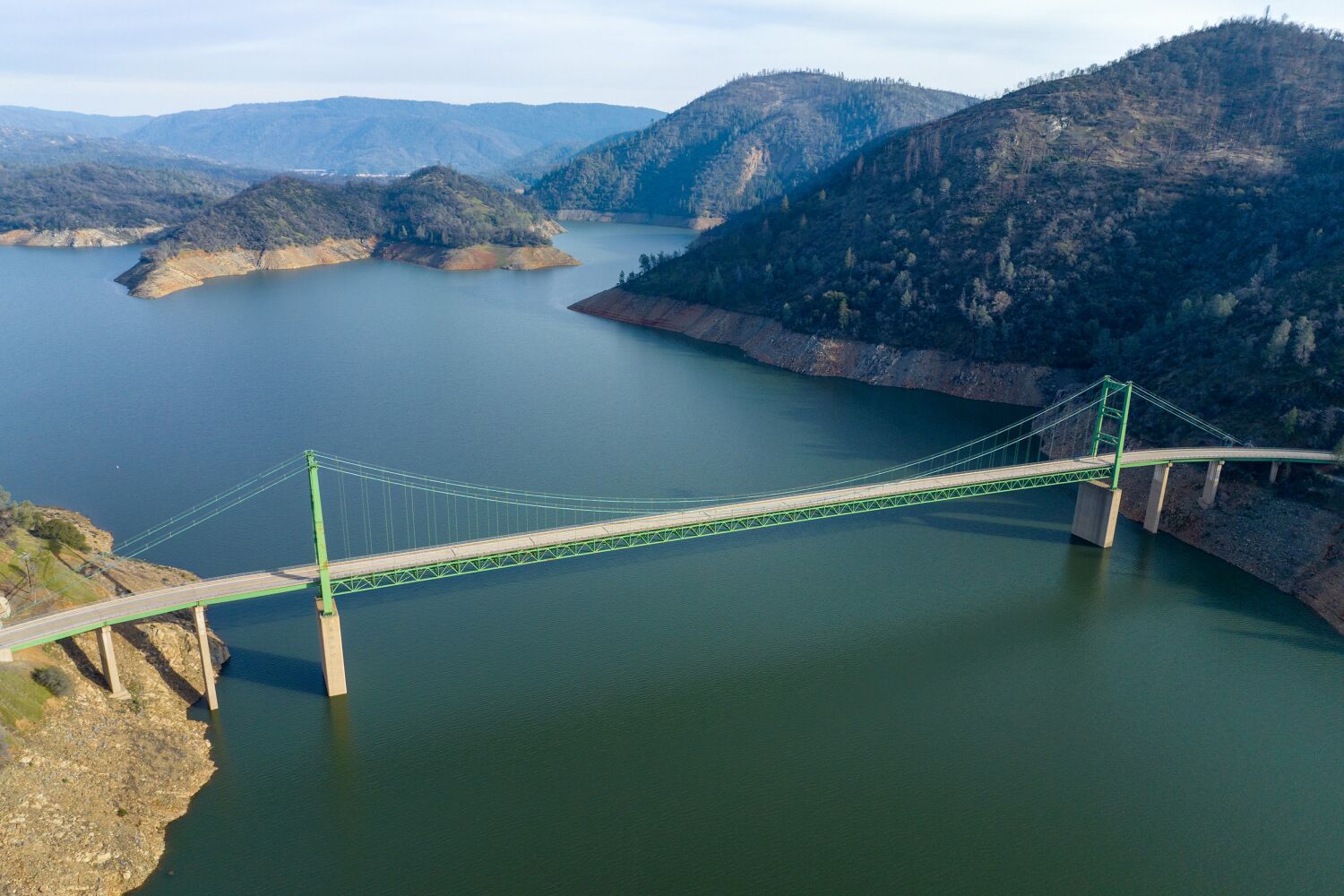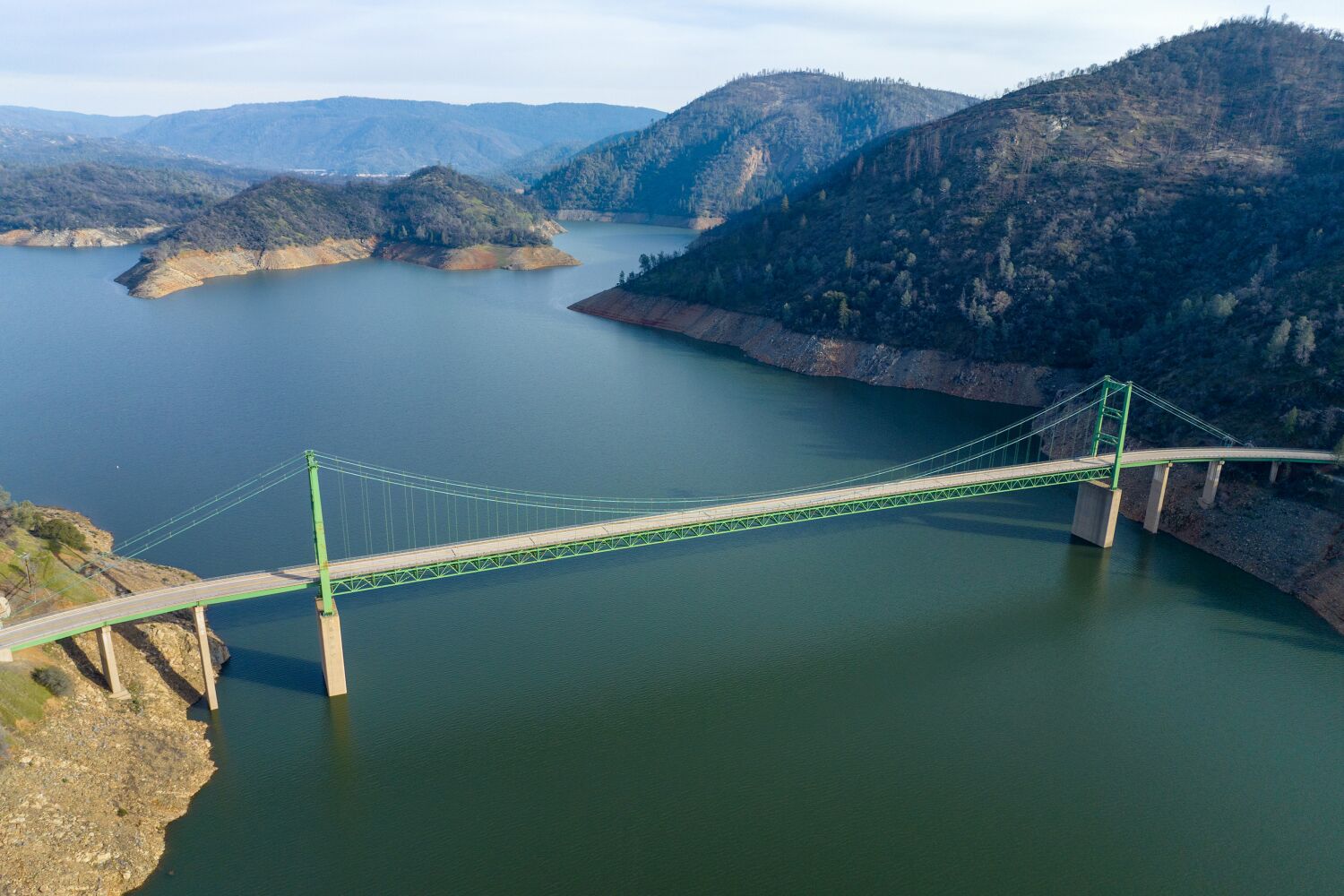
[ad_1]

After a collection of atmospheric-river storms hit California in December and January, the state’s two largest reservoirs are wanting loads fuller than they did a couple of months in the past. Earlier than-and-after satellite tv for pc images from NASA Earth Observatory present that these early-winter deluges had been difference-makers.
The images don’t have in mind a number of February storms, together with the epic snowfall over the weekend, which are also seemingly to assist transfer the needle.
Lake Shasta, proven above, is California’s largest reservoir. On Nov. 19, when the primary photograph was taken, it sat at 31% of capability, in keeping with the California Division of Water Assets.
By Jan. 29, when the “after” picture was taken, Shasta was as much as 56%. And knowledge up to date Monday from the California Division of Water Assets’ tracker present the reservoir climbing to 60%, nonetheless beneath historic ranges for February — 72% — however considerably greater than it had been.
Lake Oroville, a key element of California’s water provide, additionally benefited from the early-winter storms, as satellite tv for pc pictures attest.
On Nov. 19, when the primary photograph was taken, the reservoir stood at 28% of capability, effectively beneath its historic common.
By Jan. 30, Oroville was at 64%, and Monday’s up to date figures confirmed it at 72% — effectively above its historic common for February, 63%.
Although reservoir ranges have improved considerably, California nonetheless faces a critical drought. Consultants advised The Occasions it will take greater than a collection of storms to make up for years of water deficits.
Groundwater has been depleted and was nonetheless at dangerously low ranges in locations together with the Central Valley. In Los Angeles, stormwater seize has did not dwell as much as guarantees. The Colorado River, a significant supply of water for Southern California, is in disaster.
The storms, nevertheless, did make a distinction. Though water methods are difficult and evaluation is pending, Division of Water Assets spokesperson Margaret Mohr stated Thursday’s replace from the U.S. Drought Monitor confirmed that the state remained totally out of remarkable and excessive drought, whereas 41% of the state was underneath these classifications three months prior.
The proportion of the state in extreme drought or worse dropped from 85% to 33% in these three months.
[ad_2]
Supply hyperlink
https://classifiedsmarketing.com/today-news/before-and-after-photos-from-space-show-storms-effect-on-california-reservoirs/?feed_id=18077&_unique_id=63fd58ad9584b


